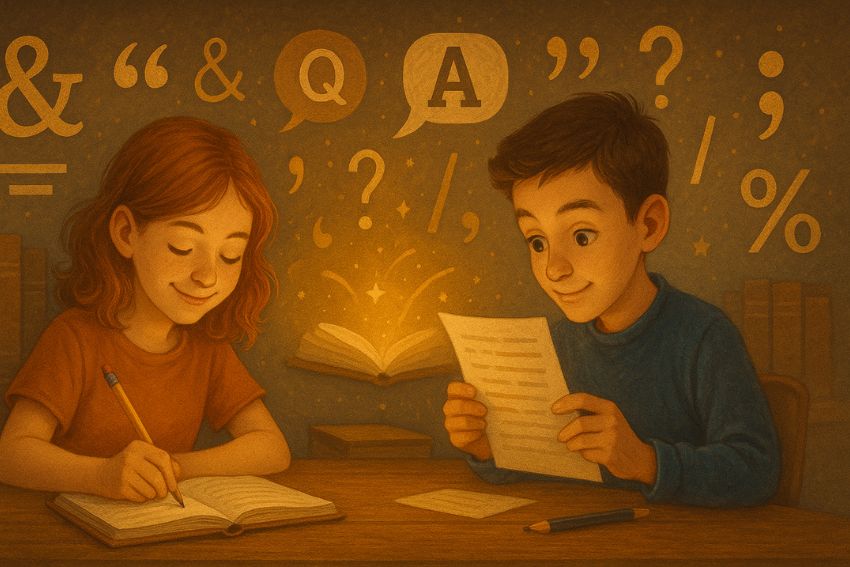Learning to read and write is a big milestone for children, and common exception words play an important role in this process. These are words that don’t follow typical phonics rules, meaning children can’t always sound them out. Instead, they need to memorise them by sight.
Mastering Year 3 common exception words helps improve reading fluency and spelling confidence. Since these words appear frequently in books and writing tasks, recognising them easily allows children to read and write more smoothly.
In this blog, we’ll explore what common exception words are, why they matter, and how you can help your child learn them in fun and effective ways!
What Are Common Exception Words?
Common exception words are words that don’t follow standard phonetic spelling rules. Unlike regular words, where children can sound out letters systematically, these words often have irregular spellings that must be memorised. To understand this better, let’s compare regular phonetic words and exception words:
Regular Phonetic Words follow predictable spelling patterns, making them easy to sound out (e.g. cat, dog, sun).
Exception Words don’t follow usual phonics rules, so they need to be learned by sight (e.g. said, was, the).
List of Year 3 Common Exception Words
Here is a list of Year 3 common exception words that children are encouraged to learn and recognise:
| Answer | Consider | Forward(s) | Length | Remember |
| Appear | Decide | Fruit | Library | Special |
| Arrive | Describe | Group | Minute | Strange |
| Believe | Different | Heard | Often | Suppose |
| Build | Difficult | Heart | Perhaps | Surprise |
| Busy | Early | History | Possible | Therefore |
| Caught | Earth | Important | Probably | Although |
| Certain | Eight/Eighth | Increase | Question | Thought |
| Circle | Favourite | Island | Recent | Through |
| Complete | February | Learn | Regular | Woman/Women |
Easy Strategies for Learning Common Exception Words
Helping your child master Year 3 common exception words can be both fun and effective. Here are some practical methods to support their learning:
1. Flashcards
Create flashcards with the word on one side and its meaning or a sentence using the word on the other. Regularly reviewing these cards can enhance recognition and recall. For that you can use websites like: Quizlet or Kahoot!
2. Mnemonic Devices
Use memory aids to help your child remember tricky words. For example, for the word “because,” you might use the phrase “Big Elephants Can Always Understand Small Elephants.” This technique makes learning more engaging and memorable.
3. Interactive Games
Incorporate games like word searches, crossword puzzles, or online quizzes that focus on common exception words. These activities make learning enjoyable and reinforce word recognition.
4. Regular Practise
Consistency is key. Set aside a few minutes each day for your child to practise reading and writing these words. Short, frequent sessions are more effective than long, infrequent ones.
5. Positive Reinforcement
Celebrate your child’s progress with praise or small rewards. Positive reinforcement boosts their confidence and motivation to continue learning.
By following these tips you can easily help your child to do well in reading and writing common exception words.
Year 3 Common Exception Words – Fun Activities to Reinforce Learning
If you want to make learning common exception words more fun for your child, you can use these fun activities that turn practise into play.

Word Scavenger Hunt
Turn reading time into an adventure! Give your child a list of common exception words and have them find them in books, magazines, or even around the house. This encourages word recognition in different contexts.
Spelling Bees
Host a family spelling bee using Year 3 common exception words. You can make it competitive or keep it light and fun. This helps children practise spelling while building confidence.
Creative Writing Prompts
Encourage your child to use common exception words in short stories or sentences. Prompts like “Write about your dream holiday” or “Describe your favourite animal” can inspire creativity while reinforcing spelling skills.
Word Art and Flashcards
Let your child create colourful word art or decorate flashcards with exception words. Visual learning can make tricky spellings easier to remember and adds a creative touch to study time.
Word of the Day
Introduce a “Word of the Day” routine. Focus on one new exception word daily, using it in sentences, conversations, or even drawings. This keeps learning manageable and consistent.
Incorporating these fun activities into your child’s daily routine will make learning Year 3 common exception words feel less like a chore and more like a game.
Challenges Children Face with Year 3 Common Exception Words
Learning Year 3 common exception words can be tricky for many children. Since these words don’t follow regular phonics rules, they often present unique challenges. Here are some common difficulties children may face and how you can help:
Irregular Spellings
Many common exception words have unusual spellings that don’t match how they sound. For example, in the word “though“, the combination of letters doesn’t follow typical phonics patterns, making it hard to decode.
How to help: Use visual aids like flashcards and word art to highlight tricky letter patterns, helping your child memorise them.
Confusing Similar Words
Some exception words look or sound similar, which can cause confusion. Words like “there” “their“ and “they’re“ often trip up young learners.
How to help: Create simple sentences that use each word correctly. This helps your child understand the differences and practise them in context.

Difficulty Remembering Spellings
Because these words can’t be sounded out, children might struggle to remember how to spell them correctly over time.
How to help: Regular practise through fun games like word scavenger hunts or spelling bees can reinforce learning in an enjoyable way.
Lack of Confidence
Struggling with spelling and reading exception words can sometimes lead to frustration and a loss of confidence in young learners.
How can you help? you can celebrate small wins and support them even if they take small steps, because small steps are still something!
Understanding these challenges allows you to offer the right support, helping your child overcome difficulties and build strong reading and spelling skills.
Conclusion
Supporting your child as they learn Year 3 common exception words can make a huge difference in their reading and writing progress. Throughout this blog, we’ve looked at how these tricky words don’t follow standard phonics rules and why they require extra attention.
We explored simple and effective strategies to help your child memorise these words, from using fun activities like scavenger hunts and spelling bees to incorporating educational tools and resources.
Most importantly, your involvement makes a big difference. By taking an active part in your child’s learning – whether it’s through daily practise, playing word games, or simply encouraging them, you’re helping them develop literacy skills that will support them throughout their education.
If you feel your child needs extra support, Online Early Years English Language Tutors can be a great resource. They offer personalised guidance and additional strategies to help your child master these words. Good Luck!
Similar Blogs








